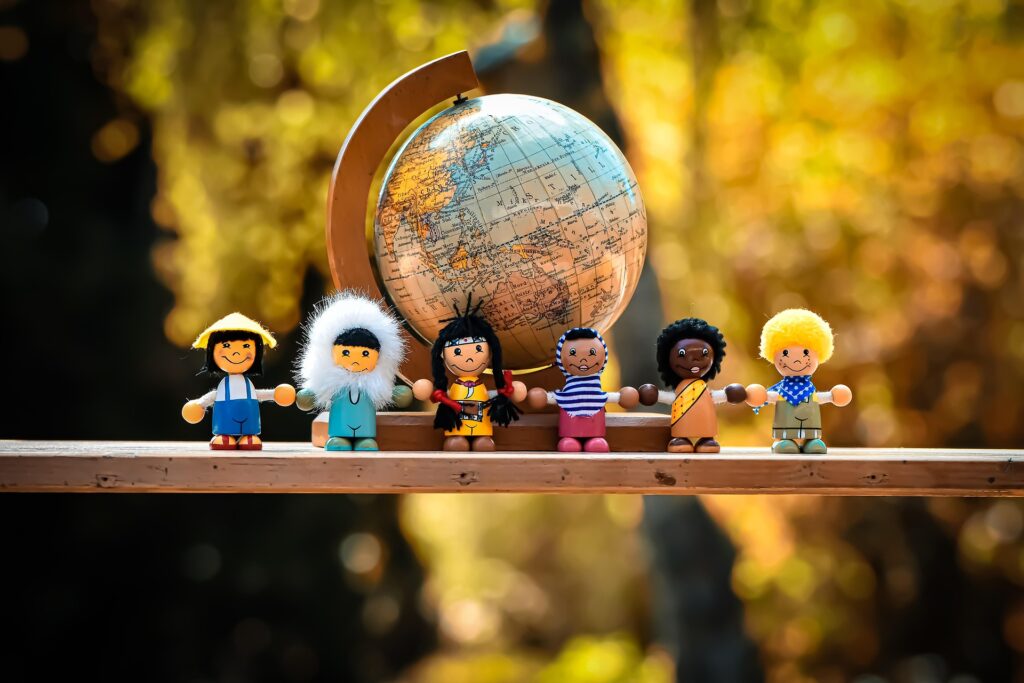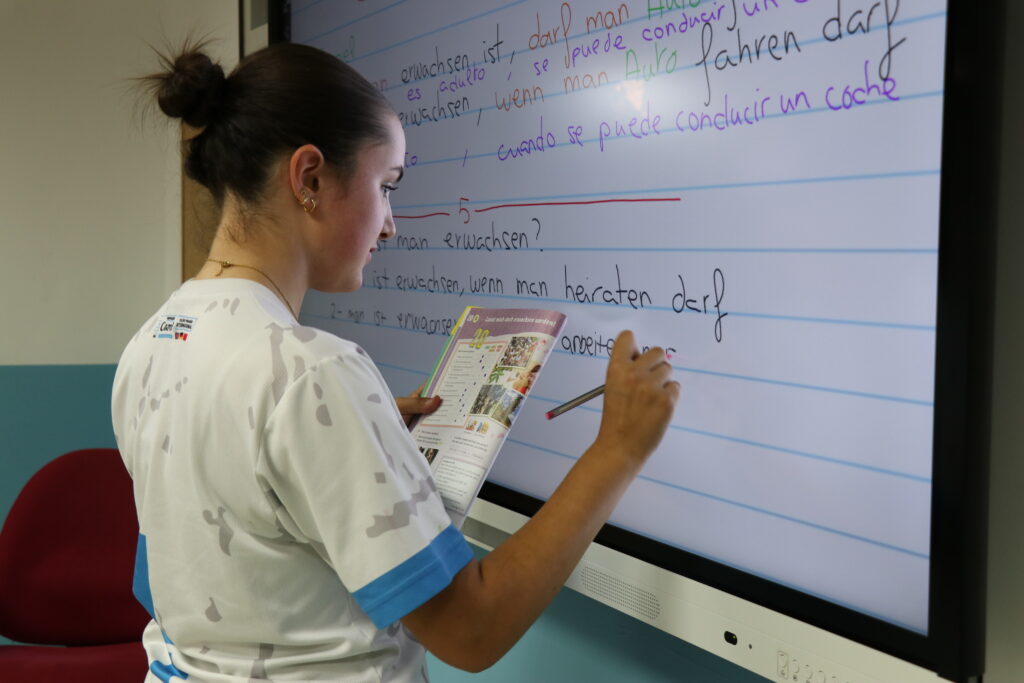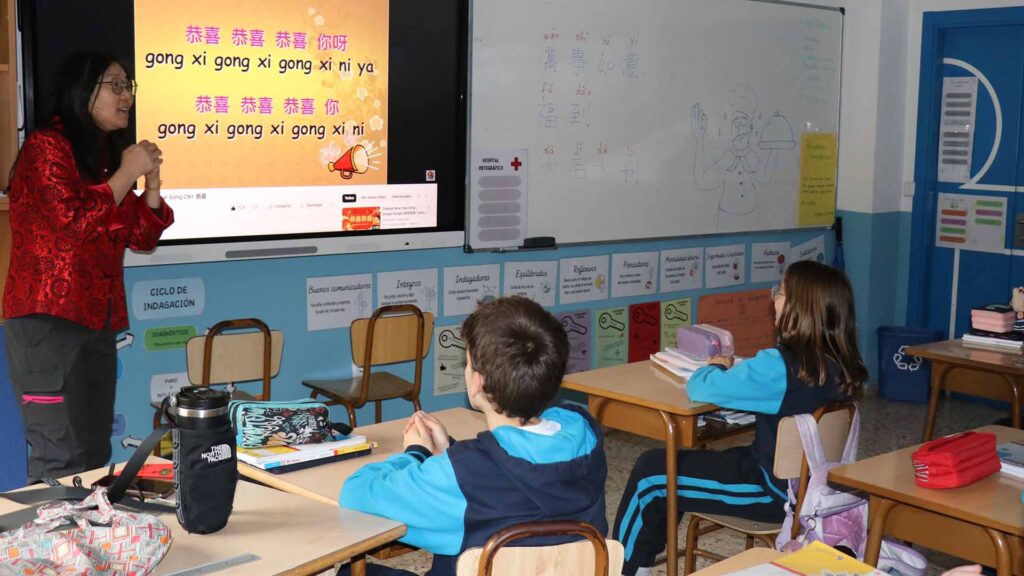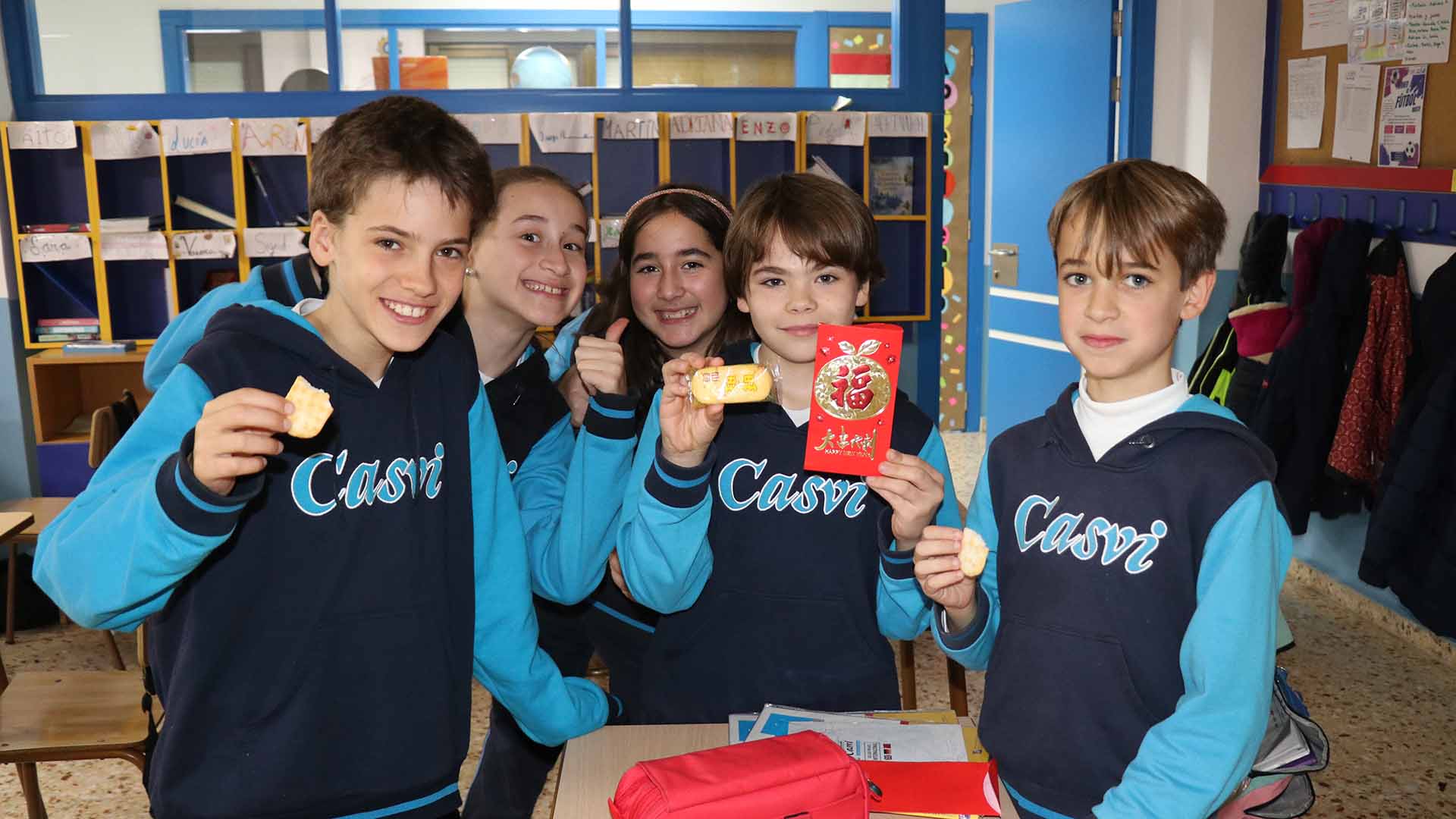In an interconnected world, many families wonder how to prepare their children to live, communicate and develop in increasingly global environments. However, the question remains: does learning foreign languages in childhood really bring benefits beyond linguistic proficiency?
LIMITATIONS DUE TO LACK OF KNOWLEDGE OF FOREIGN LANGUAGES
A lack of a solid foundation in other languages can limit a child’s socialisation, self-esteem and ability to adapt. It can also affect their future opportunities in an academic and work environment where foreign languages are an essential requirement.
Failing to act in time means missing key stages when the brain is most flexible and receptive to multilingualism. Childhood is a once-in-a-lifetime window of opportunity.

BENEFITS OF LEARNING FOREIGN LANGUAGES

According to UNESCO, exposure to foreign languages at an early age promotes children’s cognitive, emotional and social development. In the International Baccalaureate (IB), and especially in schools such as Casvi Villaviciosa, language learning is seen as a tool for developing an international mindset and strengthening essential human skills.
1.- STRENGTHENS SELF-ESTEEM AND PERSONAL CONFIDENCE
When a child discovers that they can communicate in another language, they gain confidence. They overcome challenges, feel competent and develop emotional resilience.
2.- IMPROVES EMPATHY AND INTERCULTURAL UNDERSTANDING
Foreign languages connect children with other cultures, customs and perspectives. This reduces prejudice, improves tolerance and broadens their view of the world.
3.- IMPROVES EMPATHY AND INTERCULTURAL UNDERSTANDING
Learning English or a second foreign language (German and Chinese) involves:
- Collaborative work
- Negotiation
- Active listening
- Joint problem solving
4.- DEVELOP CREATIVITY AND DIVERGENT THINKING
Investigaciones como las de Ellen Bialystok (Universidad de York) demuestran que los niños bilingües muestran una mayor flexibilidad cognitiva y creatividad.
5.- PROMOTES ADAPTATION TO DIFFERENT ENVIRONMENTS
Mastering foreign languages facilitates integration into new experiences, international activities, or cultural exchanges.

HOW WE DO IT AT CASVI VILLAVICIOSA
As a leading school in international education and part of the International Baccalaureate continuum, Casvi Villaviciosa incorporates foreign languages as an emotional, social and cognitive platform.
AN IMMERSIVE APPROACH FROM THE FIRST YEAR OF LIFE
- English as a core subject for 1 year.
- German and Chinese from Year 5 Primary School onwards.
- Small groups and native teachers.
- Activities that promote spontaneous oral expression.
- Language exchange programme with countries around the world.
ACTIVE LEARNING CONNECTED TO THE REAL WORLD
- Collaborative projects.
- Language games that boost self-esteem.
- Learning situations geared towards real communication.
SOCIO-EMOTIONAL SKILLS RELATED TO LANGUAGES
- Autocontrol
- Conflict resolution
- Liability
- Cooperative work
- Empathy
AN INTERNATIONAL COMMUNITY THAT STRENGTHENS SOCIAL RELATIONSHIPS
The day-to-day life of the school is full of cultural diversity, allowing pupils to interact with classmates from multiple backgrounds.
THE CASVI LINGUISTIC MODEL
At Casvi Villaviciosa, foreign language learning is fully integrated into the academic and emotional life of the student, promoting comprehensive development that goes far beyond language.
If you would like to discover how our linguistic model drives children’s future, visit our website and learn about our educational project.

FAQs - Frequently Asked Questions
What is the most popular foreign language to learn?
English remains the most sought-after language worldwide due to its academic and professional usefulness.
How can you maintain fluency in foreign languages once you have learned them?
With constant practice: reading, conversation, fun activities and exposure to the language in real-life contexts.
What is the best way to practise foreign languages?
Immersive methods: games, songs, interaction with native speakers, projects and communicative activities.
What is the relationship between learning foreign languages and creativity?
Learning a language stimulates divergent thinking and cognitive flexibility.
How does cultural context influence foreign language learning?
A multicultural environment promotes motivation, understanding, and empathy.
Which foreign language is most in demand in the job market?
Currently, English, followed by German and Chinese.
What are the most common mistakes when learning foreign languages?
Lack of consistency, fear of making mistakes, and little real exposure to the language.
How does learning foreign languages affect the brain?
Improves memory, concentration, and problem-solving skills.
What impact does learning foreign languages have on personal development?
It increases self-esteem, independence, tolerance, and social skills.

